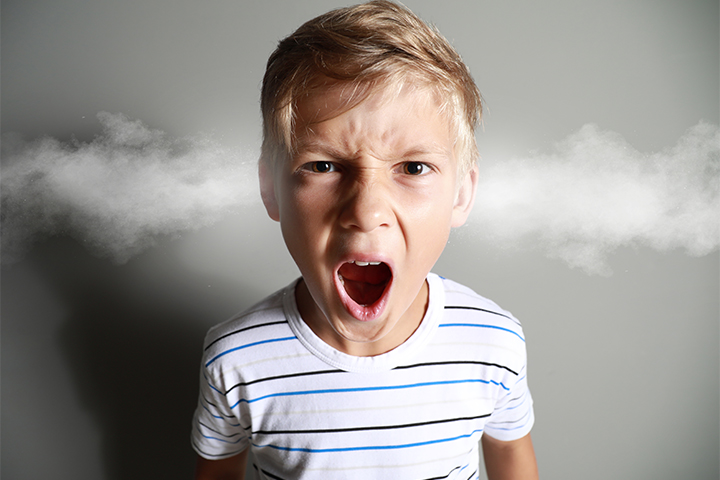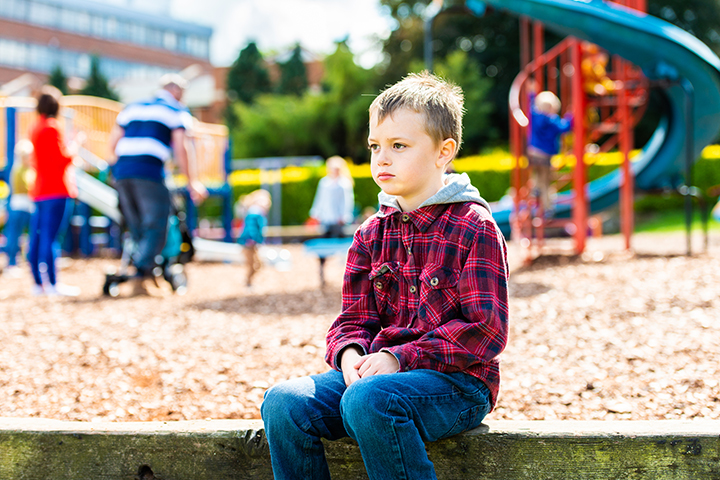
Image: Shutterstock
Mental health is of great importance to everyone, especially for children, as they are sensitive and new to the workings of the world. Everything your child is told and exposed to has an everlasting effect on them and this often molds their personality. As responsible parents, you want to ensure that your child doesn’t suffer from any childhood trauma or stress they cannot talk to you about. Parents need to remember that their child will naturally experience highs and lows, but if warning signs persist for more than a couple of weeks, it’s better to seek expert assistance. Only a trained professional can determine whether or not your child exhibits symptoms of a mental condition. Here in this article is a list of signs that your child is experiencing emotional stress and trauma that needs to be solved by professional therapy. Read on to know them all.
1. Mood Swings And Anger Issues
Image: Shutterstock
Anger outbursts, shifts in mood, or unexplained panic attacks, marked by heart palpitations and rapid breathing may indicate a mental health problem (1). Tantrums are normal in preschoolers, but most kids grow out of them by the time they reach kindergarten. Over 9 tantrums per week are acceptable for children under the age of 4. However, if you feel your child cannot control their emotions and their mood is triggered by the simplest of actions, you need to help them or out by taking them to professional counseling.
2. No Concern About Their Appearance
Image: Shutterstock
Children mostly like to wash their hands a thousand times a day or comb their hair multiple times. So, if you notice your child is suddenly sloppy and untidy, pay attention to the problem. Of course, there are times when kids don’t want to clean up, but this is more about a persistent or extreme display. Make sure you ask them why they are not interested in keeping clean or putting on fresh clothes; if they don’t have an answer and prefer to stay alone all day, it might be a warning sign of mental stress.
3. Avoiding Loved Ones
Image: Shutterstock
Something may be wrong if a person suddenly withdraws from all social activities, even with close relatives. If your child has suddenly become uninterested in even their closest friends and schoolwork, you should go to a professional who can determine the cause of this behavior and get things back on track. Fights and disagreements among friends are common, but if they refuse to be around anyone and everyone, it might be a sign of mental stress.
4. Not Liking Things They Used To Like
Image: Shutterstock
If your child suddenly loses interest in activities or foods he or she once enjoyed, this might be a symptom of a change in an emotional state. Naturally, children can develop new preferences but pay closer attention since other signs may be at play. For example, notice if your child is not eating a particular or all of the food. If they avoid certain food, it’s nothing to be worried about. But if it is the whole meal, it might be a sign of a bigger problem that would need therapy guidance.
5. Involved In Risky Operations
Image: Shutterstock
Risky conduct manifests itself in fighting, extreme sports, and school absences. If your child is suddenly interested in dangerous activities and operations, you need to help them with therapy immediately. Their inability to see the consequences of their risky behaviors creates problems for them later in life.
6. Frequent Illness
Image: Shutterstock
Intense physical discomfort is a physical manifestation that can occur even when no apparent medical explanation exists. For example, your child may constantly suffer headaches, stomachaches, nausea, or anything else. In addition, researchers have noted that childhood headaches are linked to several psychopathological conditions like sadness and anxiety (2).
7. Changes In Their Diet
Image: Shutterstock
Mental illness can negatively impact one’s ability to take care of one’s basic physical needs, such as eating and sleeping. If patterns shift for the worst and remain unfavorable for an extended period, you should look into this as a sign of mental stress.
Almost every child overreacts and has the wildest of imaginations. Acting out on all of them might leave you on the doorstep of a pediatric psychiatrist. However, every child is different, and not all signs are warning signs of trauma. Make sure you talk to your child and help them with first-hand assistance to understand how deep the emotional wound is. If you feel it needs medical attention, make sure you don’t delay the appointment with the therapist. So, what is it about child therapy that intrigues you the most? Let us know in the comments section!



















